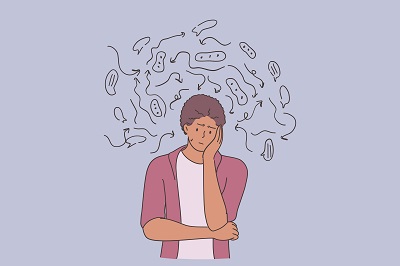How to Fix Anxiety quick read A Comprehensive Guide to Relieving Anxiety: Strategies for Finding Inner Peace

Introduction
How to Fix Anxiety
Anxiety has become increasingly prevalent in today’s fast-paced world, affecting millions of people globally. Whether triggered by work stress, personal relationships, or societal pressures, managing anxiety is crucial for overall well-being. Fortunately, numerous effective strategies exist to alleviate anxiety and promote inner peace. In this comprehensive guide, we will explore various techniques and practices to help you find relief from anxiety.
Understanding Anxiety
Before delving into coping mechanisms, it’s essential to understand what anxiety is and how it manifests. Anxiety is a natural response to stress or perceived threats, characterized by feelings of fear, apprehension, and worry. While occasional anxiety is normal, persistent or overwhelming anxiety can significantly impact daily life and mental health.
Recognizing Symptoms:
Identifying the symptoms of anxiety is the first step toward managing it effectively. Common signs of anxiety include:
- Persistent worry or rumination
- Restlessness and irritability
- Difficulty concentrating
- Muscle tension and fatigue
- Racing heartbeat or palpitations
- Sweating, trembling, or shortness of breath
By recognizing these symptoms, individuals can take proactive steps to address their anxiety and prevent it from escalating.
Effective Strategies for Anxiety Relief:
- Deep Breathing Exercises: Deep breathing exercises are a powerful tool for calming the mind and reducing anxiety. Practice diaphragmatic breathing by inhaling deeply through your nose, allowing your abdomen to expand, and exhaling slowly through your mouth. Repeat this process several times, focusing on each breath to promote relaxation.
- Mindfulness Meditation: Mindfulness meditation involves staying present in the moment without judgment, allowing individuals to observe their thoughts and emotions without becoming overwhelmed by them. Regular meditation practice can help reduce anxiety levels and cultivate a sense of inner peace.
- Regular Exercise: Engaging in regular physical activity, such as walking, jogging, or yoga, releases endorphins – the body’s natural stress relievers. Exercise also promotes better sleep, boosts mood, and reduces muscle tension, making it an effective strategy for managing anxiety.
- Healthy Lifestyle Habits: Adopting a healthy lifestyle can significantly impact anxiety levels. Ensure you get an adequate amount of sleep each night, eat a balanced diet rich in fruits, vegetables, and whole grains, limit caffeine and alcohol intake, and prioritize self-care activities that bring you joy.
- Seek Professional Help: If anxiety persists despite self-help strategies, don’t hesitate to seek professional help from a therapist or counselor. Therapy sessions can provide valuable insights, coping mechanisms, and support tailored to your specific needs.
- Practice Relaxation Techniques: Incorporate relaxation techniques such as progressive muscle relaxation, guided imagery, or aromatherapy into your daily routine to alleviate stress and anxiety. Experiment with different techniques to discover what works best for you.
- Establish a Support Network: Surround yourself with supportive friends, family members, or support groups who can offer encouragement, understanding, and perspective during challenging times. Sharing your feelings with others can help alleviate feelings of isolation and promote emotional well-being.
Conclusion:
Anxiety is a common experience, but it doesn’t have to control your life. By incorporating these effective strategies into your daily routine, you can take proactive steps toward managing anxiety and finding inner peace. Remember that everyone’s journey is unique, so be patient and compassionate with yourself as you navigate the path towards anxiety relief. With time, practice, and perseverance, you can overcome anxiety and cultivate a greater sense of well-being.
ALSO READ
